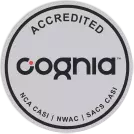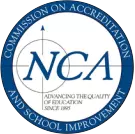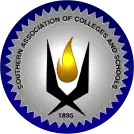Health Science Foundations
OVERVIEW
Step into the Health Science Foundations course and learn what it takes to be a healthcare professional. This course is designed to provide the students with in-depth knowledge of the healthcare system and introduce them to various occupations. Students will explore the educational requirements, licenses, and certifications for careers at multiple levels within the healthcare system. Throughout this course, students will learn what it means to have a healthy lifestyle, how to prevent disease and illness, and their responsibilities as patients and future employees in the healthcare system. They will learn everything from applying for a job to ensuring the soft skills needed to excel in their career. The course will focus on communication and interpersonal skills, the use of technology, ethics, and developing critical thinking and problem-solving skills. Students will also learn first aid skills and how to assess vital signs. Health Science Foundations is part of the Secondary Health Core.
MAJOR TOPICS AND CONCEPTS
Semester I
- Describe types of healthcare providers and the range of services available
- Identify factors that influence the current delivery system of healthcare
- Identify differences between each health care cluster
- Identify employment opportunities and career growth potential for healthcare workers
- Describe personal traits or attitudes desirable in a member of the healthcare team
- Describe appropriate professional behavior
- Develop an appropriate résumé and cover letter for a job in the healthcare profession
- Identify basic observational skills and related documentation strategies in written and oral form
- Describe subjective information and objective information
- Identify examples of courteous and respectful behavior in the healthcare field
- Identify the composition and functions of a healthcare team
- Demonstrate methods for building positive team relationships
- Demonstrate effective techniques for managing team conflict
- Identify potential malpractice
- Differentiate between legal and ethical issues
- Describe the code of ethics in healthcare
- Identify and report illegal and/or unethical practices
Semester II
- Describe technology applications in healthcare
- Identify characteristics of science and its limitations
- Identify basic medical abbreviations
- Describe ways to promote disease prevention
- Identify complementary and alternative health
- Identify adverse effects of using alcohol and tobacco
- Identify the five schedules of controlled substances
- Demonstrate positive self-image, wellness, and stress
- Develop wellness and stress control plans
- Describe medical and surgical asepsis
- Differentiate fact and fallacy about disease transmission and treatment caused by bloodborne pathogens and Hepatitis B
- Identify legal aspects of HIV/AIDS to include issues related to testing
- Describe the theory of root-cause analysis
- Demonstrate personal safety procedures based on the CDC and OSHA regulations.
- Demonstrate procedures for adequately identifying patients.
- Demonstrate proper body mechanics and ergonomics
- Identify vital signs and their measurements
- Obtain and maintain training or certification in CPR, AED, FBAO (Foreign Body Airway Obstruction), and First Aid
Fee Details
| Progam | Regular |
| Fee | $ 558 |
Grade Level
Grades 9, 10, 11, 12
Duration
10 Months
Requirements
None












